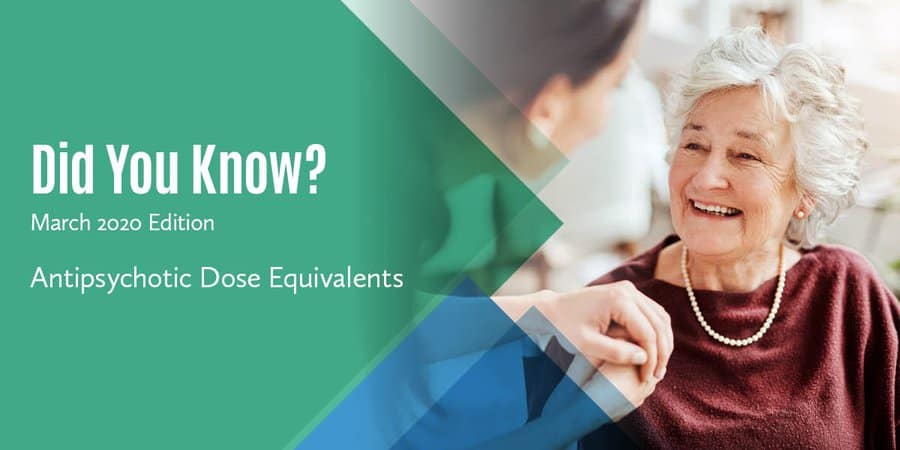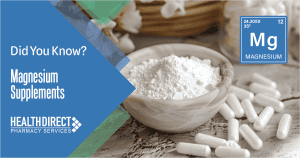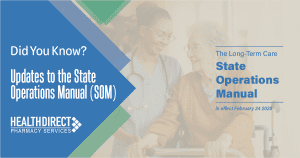Second Generation Antipsychotics

Antipsychotic Usage in Long Term Care
Antipsychotics are used for a variety of indications in LTC. Sometimes, patients need to be switched from one antipsychotic to another for insurance reasons, efficacy, or adverse effects. The tables below provide a list of antipsychotic dose equivalents:
First Generation Antipsychotics

Regulation Compliance and Best Practices
Remember, as stated in the regulations, residents must not receive any medications which are not clinically indicated to treat a specific condition. The medical record must show documentation of the diagnosed condition for which a medication is prescribed.
Within the first year in which a resident is admitted on a psychotropic (i.e. antipsychotic) medication or after the prescribing practitioner has initiated a psychotropic medication, the facility must attempt a GDR in two separate quarters (with at least one month between the attempts), unless clinically contraindicated. After the first year, a GDR must be attempted annually, unless clinically contraindicated.
PRN orders for anti-psychotic drugs are limited to 14 days and cannot be renewed unless the attending physician or prescribing practitioner evaluates the resident for the appropriateness of that medication.
Monitoring Adverse Effects and Efficacy of Antipsychotic Drug Therapy
Monitoring for adverse effects as well as efficacy of therapy must be in place. Adverse effects of antipsychotics may include:
- General: anticholinergic effects which may include flushing, blurred vision, dry mouth, altered mental status, difficulty urinating, falls, excessive sedation, constipation
- Cardiovascular: signs and symptoms of cardiac arrhythmias such as irregular heart beat or pulse, palpitations, lightheadedness, shortness of breath, diaphoresis, chest or arm pain, increased blood pressure, orthostatic hypotension
- Metabolic: increase in total cholesterol and triglycerides, unstable or poorly controlled blood sugar, weight gain
- Neurologic: agitation, distress, EPS, neuroleptic malignant syndrome (NMS), parkinsonism, tardive dyskinesia, cerebrovascular event (e.g., stroke, transient ischemic attack (TIA).
- BLACK BOX WARNINGS: The FDA Boxed Warning which accompanies second generation anti-psychotics states, “Elderly patients with dementia-related psychosis treated with atypical anti-psychotic drugs are at an increased risk of death.” The FDA issued a similar Boxed Warning for first generation antipsychotic drugs.
References:
- Psychiatric Pharmacy Essentials: Antipsychotic Dose Equivalents. CPNP. Web, 2018.
- State Operations Manual Appendix PP – Guidance to Surveyors for Long Term Care Facilities. Centers for Medicare and Medicaid Services. Web, Nov 2017.
Pharmacy Partnerships for Antipsychotic Medication Management
When you partner with HealthDirect, we constantly review medications for effectiveness and adverse reactions to optimize therapy. Through our ongoing medication management review process and participation in QA committees, we are connected, available and constantly working with you toward enhanced resident wellness. For more information about how HealthDirect can help with antipsychotic medication management, call us at (888) 331-3883. Our knowledgeable team is available from Monday–Friday, 8:00am to 4:30 pm EST. Or, if you prefer, visit our contact page.




